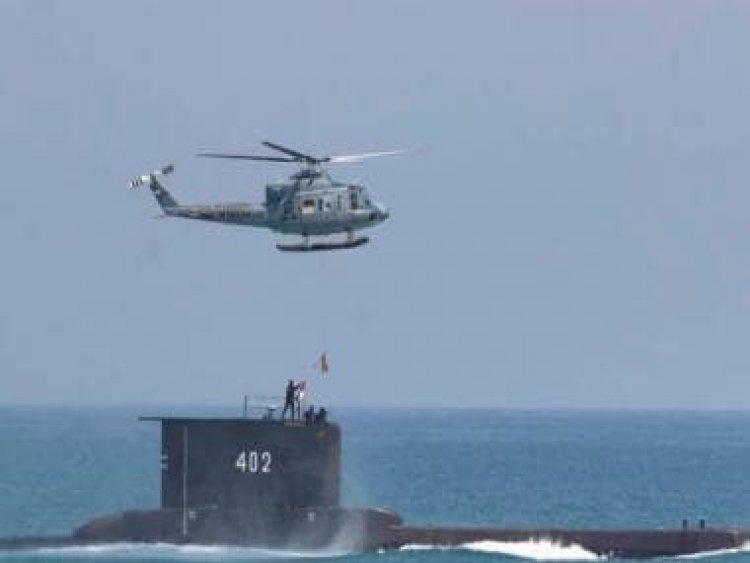To deter China, Indonesia mulls submarine deal with France
To deter China, Indonesia mulls submarine deal with France

With France’s assistance, Indonesia plans to invest heavily in developing its submarine fleet, perhaps ending its long-standing defence alliance with South Korea in that sector.
The Indonesian Ministry of Finance has authorised the Ministry of Defense’s request for US$2,16 billion in foreign loans to finance the submarine acquisition programme, according to this month’s report from the defence resource Janes.
The Indonesian Finance Minister Sri Mulyani Indrawati cited a request from the Defence Minister Prabowo Subianto outlining a list of 25 military procurement programmes for which foreign loans have been proposed as the source of funding for 2023, according to a declassified letter obtained by Janes during this month’s International Maritime Defence Exhibition and Conference (IMDEX 2023) that was made public.
Two air-independent propulsion (AIP) submarines with submerged displacements of 1,800 and 2,800 tonnes are mentioned in the letter, according to the source, and money will cover the expenses of logistics and maintenance packages, training, and shipbuilding technology transfer.
In March 2022, Jakarta had made plans to purchase two Scorpene-class submarines from France, formalising an agreement that effectively eliminates South Korea as Indonesia’s main partner in maintaining its submarine fleet. This information relates to the type of submarines Jakarta intends to purchase.
This occurred despite the Indonesian Ministry of Defence and South Korean builders Daewoo Shipbuilding and Marine Engineering (DSME) signing a procurement deal in April 2019.
French Naval Group and Indonesian shipbuilder PT PAL had signed a preliminary agreement last February to work together on the construction of two Scorpene submarines and to establish a cooperative research and development facility in Indonesia. The purpose of that agreement was to make it easier to integrate weapons and systems into submarines, provide for training and operations, and expedite building and sustainment.
Indonesia may be aware that submarines might aid fleets with little resources in terms of their sizeable capabilities.
In a January 2022 article for The Diplomat, Muhammad Malufti and Alban Sciascia point out that due to technological developments like long-range precision-guided munitions (PGMs), it is now possible for enemies to attack Indonesia without even entering its exclusive economic zone (EEZ). As a result, it is crucial for the Indonesian Navy to have the ability to project power in order to find and eliminate such adversaries.
Submarines may be the greatest tool for the job, but Malufti and Sciascia argue that Indonesia lacks the means to develop a blue-water navy and must instead focus on cost-effective solutions.
They point out that because of their inherent stealth, submarines are a more effective deterrent than other naval assets, and that Indonesia needs to upgrade its fleet with newer models equipped with politically and economically viable technologies like lithium-ion batteries, very low frequency (VLF) communications systems, and submarine-launched anti-ship missiles.
The Indonesian Navy has vast expertise operating submarines; it has done so since 1959, and its subs have been policing its waters for more than six decades, as noted by Malufti and Sciascia. During the 1965 India-Pakistan War, it dispatched two of its Soviet-built Whiskey-class submarines to support Pakistan, and in 1999, it sent one of its German-built Type 209 submarines to keep an eye on the International Force East Timor fleet.
Additionally, they claim that a submarine programme will benefit Indonesia’s local shipbuilding sector by providing submarine maintenance, repair, and overhaul.
However, constructing submarines presents substantial difficulties for Indonesia. Regarding PT PAL’s ability to do so, Mike Yeo writes in a February story for Defence News that the commander of the tragic KRI Nanggala had noted the shipbuilder’s bad maintenance on the submarine as well as work on the KRI Alugoro.
Yeo claims that may be because Indonesia’s submarine programme is so jumbled up, with players from Germany, South Korea, France, and home companies making it difficult to integrate systems across several ship designs. In addition, he claims that Indonesia’s shipbuilding sector would have trouble producing submarines since it lacks the necessary expertise and needs more competent indigenous players.
The sudden withdrawal of South Korea as Indonesia’s main submarine programme partner may have far-reaching regional effects throughout the Pacific.
As the submarine underwent a renovation in South Korea in 2012, Alexander Hynd and Max Broad speculate in a February article in The Interpreter that Indonesia’s concerns about its defence alliance with that country may have been exacerbated by the April 2021 loss of KRI Nanggala.
According to Hynd and Broad, should its submarine agreement with Indonesia not materialise, DSME poses significant financial risks to South Korea. They point out that DSME has already placed pre-orders for parts for Indonesia’s submarine purchase and that South Korea is dissatisfied with Indonesia’s failure to make good on their April 2019 deal.
They drew parallels between Australia and Indonesia’s sudden decisions to abandon South Korea and France as their primary submarine programme partners, which led to diplomatic fallout and a loss of trust that might impede future defence cooperation between the two regional powers.
Hynd and Broad added that a speedy resolution of the tentative submarine deal between South Korea and Indonesia in April 2019 would provide Jakarta a fresh start in its relations with Seoul and make clear its aspirations for navy modernisation.
They add that the prompt resolution of the matter will enable South Korea to advance its push as an alternative arms supplier free from the political restrictions placed on US, Chinese, or Russian weapons, as well as consolidate its New Southern Policy, which places an emphasis on establishing economic and political ties with the Association of Southeast Asian Nations.
What's Your Reaction?



























































